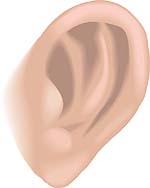Omissions, Additions, Substitutions

The learning disabled tend to omit single phonemes or syllables in word pronunciation. Thus /walking/ may be read as /walk/, /boxes/ as /box/, /rust/ as /rut/, /bent/ as /bet/, etc. While the first two types may not significantly affect the meaning derived from the content, the remaining two would render the statement meaningless. Sometimes, whole words may be omitted. Although whole-word omissions are usually the result of visual oversight, the anticipation of difficulties in pronunciation of a particular word may cause the child to simply ignore it. Some children tend to add words or sound units, as, for example, /the little baby/ in place of /the baby/ or /baby sister/ instead of /baby sitter/, etc. Frequently heard phrases which become automatically associated with each other tend to be added more frequently than others, such as /Once upon a time there was/ in place of /Once there was/, etc. Wiig and Semel reported that words beginning with /s/ blends tend to cause some learning disabled to omit some sound units in words, as, for example, /spit/, /sit/ for /split/, while in others to add sounds, as, for example, /split/ or /slit/ for /sit/. As for substitutions, we have already noted one type under memory problems. These may be described as meaningful substitutions in the sense that their use does not alter the meaning of the text greatly. Other substitutions, however, may change or distort the meaning. Mattis suggested that some of the substituted words may sound like the correct words but are not. For example, the child may read /hijackers/ instead of /hitchhikers/ or /optimist/ for /optometrist/, etc.
< Previous Page | Next Page >
|
